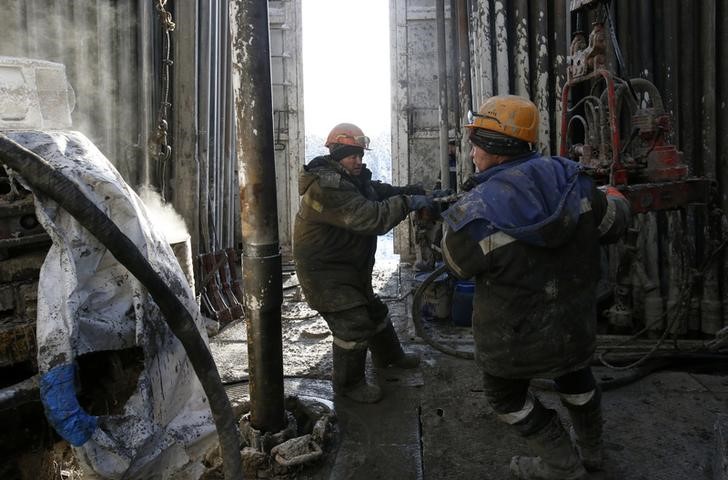* U.S. oil drilling continues to rise
* Signs of slowing demand growth in Asia
By Henning Gloystein
SINGAPORE, June 19 (Reuters) - Oil prices fell early on Monday, weighed down by high supplies despite an OPEC-led initiative to cut production to tighten the market.
Signs of faltering demand stoked weak sentiment, prompting price levels comparable to when the output cuts were first announced late last year.
Brent crude futures LCOc1 were down 11 cents, or 0.23 percent, at $47.26 per barrel at 0035 GMT.
U.S. West Texas Intermediate (WTI) crude futures CLc1 were down 11 cents, or 0.25 percent, at $44.63 per barrel.
Prices for both benchmarks are down by almost 13 percent since late May, when producers led by the Organization of the Petroleum Exporting Countries (OPEC) extended their pledge to cut production by 1.8 million barrels per day (bpd) by an extra nine months until the end of the first quarter of 2018.
Traders said that the main factor driving the low prices was a steady rise in U.S. production undermining the OPEC-led effort to tighten the market.
"The U.S. oil rig count continued to rise, up by 6 last week ... Since its trough on May 27, 2016, producers have added 431 oil rigs," Goldman Sachs (NYSE:GS) said late on Friday. U.S. bank said that if the rig count stayed at current levels, U.S. oil production would increase by 770,000 barrels per day between the fourth quarter of last year and the same quarter this year in the shale oil fields of the Permian, Eagle Ford, Bakken and Niobrara.
Supplies from within OPEC and other countries officially participating in the cuts, like Russia, also remain high as some countries have not fully complied with their pledges. are also indicators that demand growth in Asia, the world's biggest oil consuming region, is stalling.
Japan's customs-cleared crude oil imports fell 13.5 percent in May from the same month a year earlier, to 2.83 million barrels per day, the Ministry of Finance said on Monday. which recently overtook Japan as Asia's second biggest oil importer, saw May's demand for oil fall by 4.2 percent in May, compared with the same month last year China, which is challenging the United States as the world's biggest importer, oil demand growth has been slowing for some time, albeit from record levels, and analysts expect growth to slow further in coming months. the glut of oil will be challenging," ANZ bank said on Monday.
